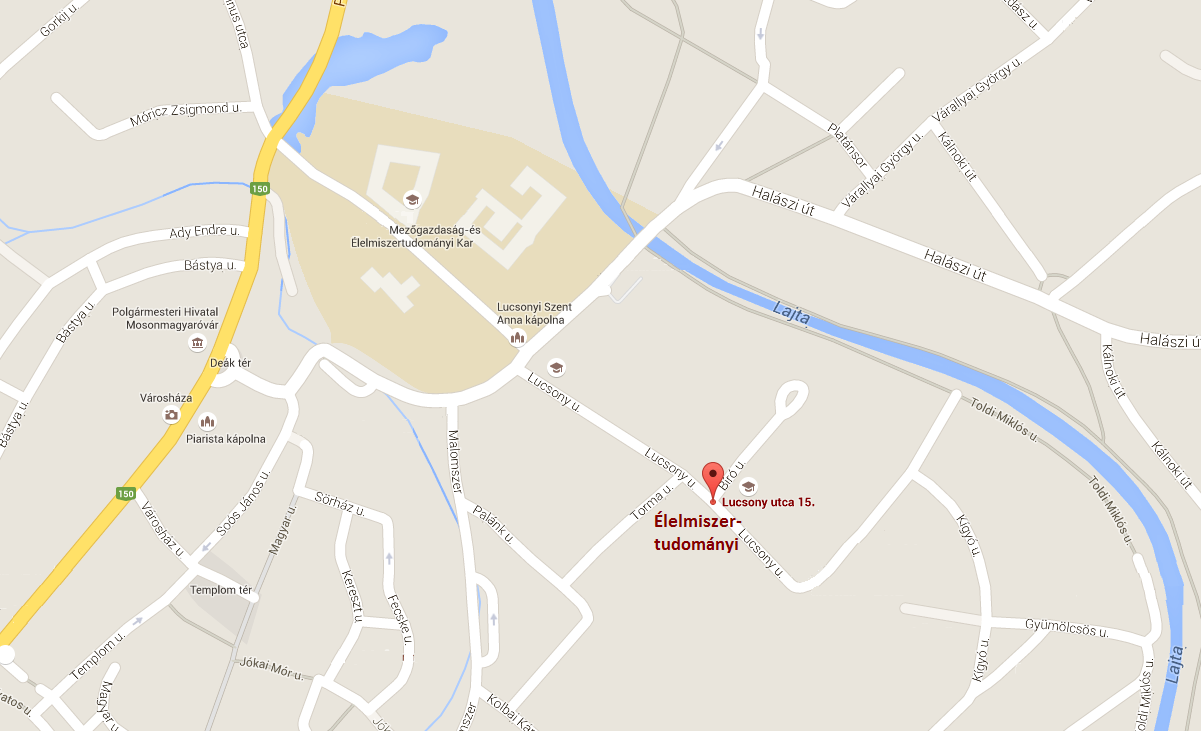Food Engineering, BSc
The aim of the program is to provide food engineers having a general knowledge in basic biology, chemistry, physics and basic technical sciences, with specialized knowledge in food science, professional knowledge in food production and preservation, and food technology. Equipped with the basics of food industry operations, engineers are able to apply modern technological and biotechnological processes in food processing and preservation, as well as to contribute to the establishment and management of quality assurance systems. They are capable of preparing EU, national and regional applications. They are also able to communicate in a foreign language. They have solid, well-founded knowledge to advance to the second academic level (MSc).
Responsible for Food Engineering: Viktória Kapcsándi, PhD - associate professor
With a bachelor's degree, food engineers are able to:
- Knowledge of the main processes in physics, chemistry and biology involved in food production, their basic laws and methods of analysis. Knowledge and understanding of the basic concepts, interrelationships and processes of food chain safety.
- Knowledge of the basic concepts, facts, theories, main features and interrelationships of food production and handling as a whole, the relevant food industry players, their functions and the processes involved in the industry.
- Has the key theoretical, methodological and practical knowledge necessary for this.
- Knowledge and understanding of the main products of the food industry, their raw materials, production technologies and the factors that determine the quality and safety of food in relation to health-conscious nutrition
- Knowledge and understanding of the principles, machinery, equipment and instruments of food processing operations in a broad sense and their operation in practice.
- Possess management skills applicable to the food industry, regardless of the size of the farm (family farm, industrial farming)
- Possess knowledge of basic ethical rules in the food industry
- Knowledge of the institutional network and the related legislation governing the food industry.
- Knowledge of the principles of laboratory testing for the identification of food technology and food safety problems
- Knowledge of relevant information gathering, analysis and problem solving methods
- Understanding of the role and purpose of R&D&I activities in the food industry.
- Know and use the forms, methods and tools of effective communication
- Know the professional vocabulary of the food industry in Hungarian and a foreign language.
They have the ability to cooperate, professional communication skills, knowledge of foreign languages, and a sense of responsibility.
About the training
Food Engineering students can acquire all the necessary theoretical and practical knowledge at Széchenyi István University, Albert Kázmér Faculty of Mosonmagyaróvár and its laboratories. During the training, students can acquire knowledge from diverse fields, such as classical and modern methods of microbiology (food spoilage, human disease, beneficial microorganisms), analytics (chemical examination of foods - mass and volume measurement and large-scale spectroscopy and chromatography), technology (production of plant and animal products and technical knowledge), sensory evaluation (criteria according to standards) and production of functional foods.
About the profession
The Food Engineering profession requires knowledge of extremely diverse scientific fields from professionals. The task of a food engineer is to monitor and coordinate the quality of foods and their health safety "from the field to the table" that are delivered to consumers. Thus, food engineers of the future must be aware of laboratory testing and technological steps, from the qualification of incoming raw materials, through product processing and product development processes to transportation, and must be familiar with current public health regulations and quality assurance systems in order to comply with and enforce the listed operations.
Job opportunities:
There are many job opportunities for Food Engineers in the labour market. The entire food industry sector is at the graduates’ disposal, from laboratory positions (laboratory manager), through quality assurance areas (auditing) to various positions in production (product developer, production manager). But outside the food sector, the graduate can also work in the pharmaceutical sector, where they can be involved in the development of medicines and their large-scale testing and quality assurance. But it is also possible to work in other areas, such as animal feed (animal feed manufacturer), control authorities (NÉBIH), or to set a private food business.
Requirements for professional practice:
The professional practice consists of two parts: a total of at least three weeks of practical training related to the professional theoretical training, the completion of which is a criterion condition without credit value, and a professional practice lasting one semester (twelve to fifteen weeks).
The sample curriculum for the BSc program can be viewed at the following link:

